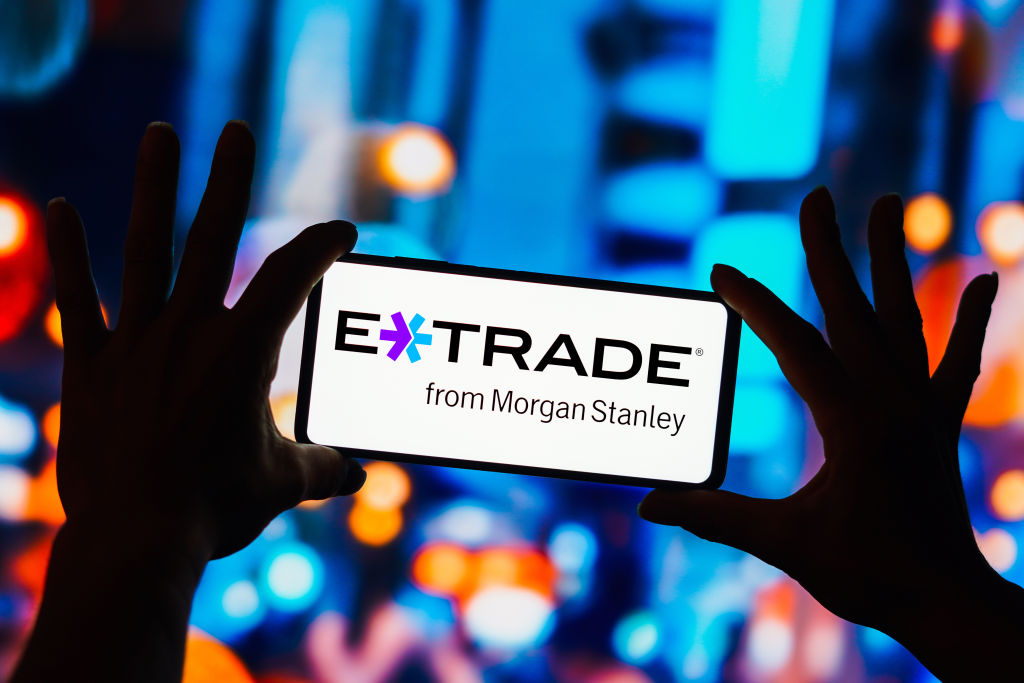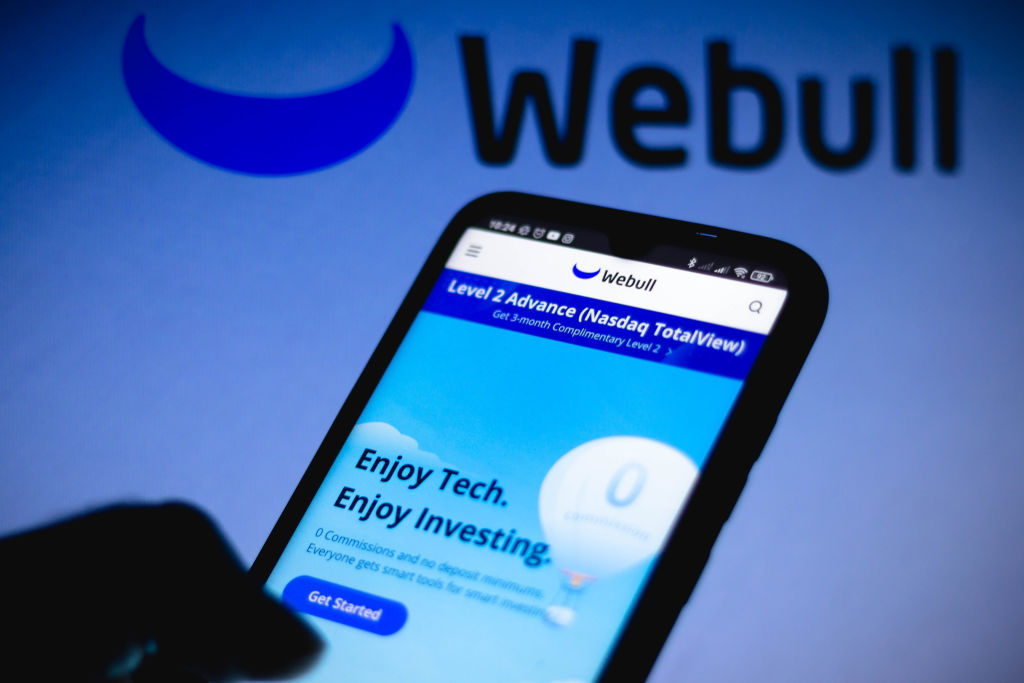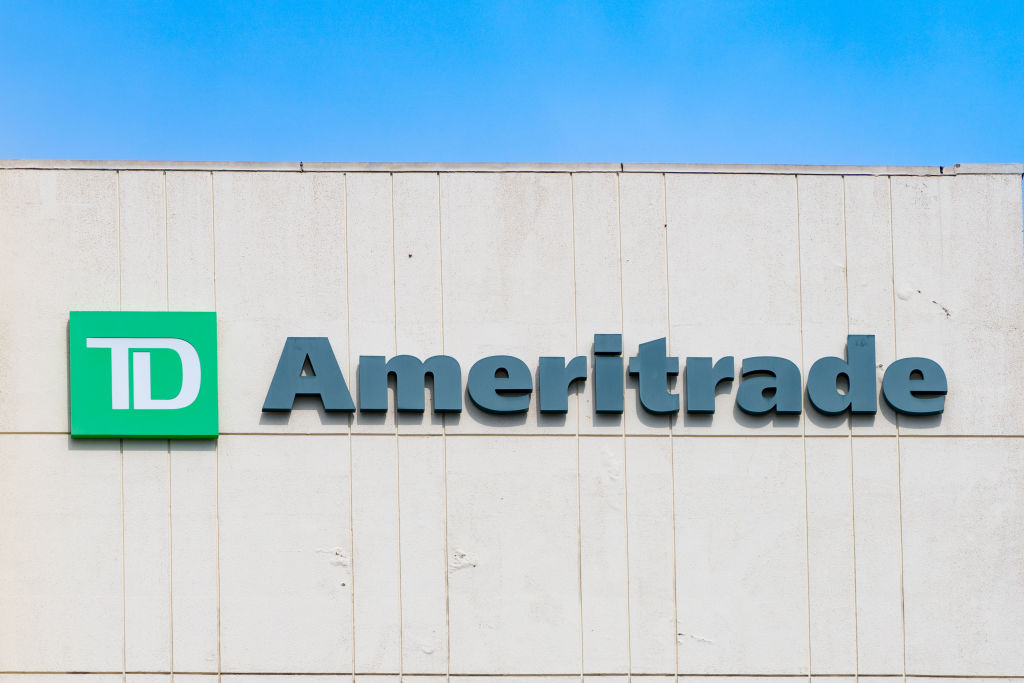The Best Options Trading Platforms
Among a sea of possibilities, here are five of the best options trading platforms for investors.


Profit and prosper with the best of Kiplinger's advice on investing, taxes, retirement, personal finance and much more. Delivered daily. Enter your email in the box and click Sign Me Up.
You are now subscribed
Your newsletter sign-up was successful
Want to add more newsletters?

Delivered daily
Kiplinger Today
Profit and prosper with the best of Kiplinger's advice on investing, taxes, retirement, personal finance and much more delivered daily. Smart money moves start here.

Sent five days a week
Kiplinger A Step Ahead
Get practical help to make better financial decisions in your everyday life, from spending to savings on top deals.

Delivered daily
Kiplinger Closing Bell
Get today's biggest financial and investing headlines delivered to your inbox every day the U.S. stock market is open.

Sent twice a week
Kiplinger Adviser Intel
Financial pros across the country share best practices and fresh tactics to preserve and grow your wealth.

Delivered weekly
Kiplinger Tax Tips
Trim your federal and state tax bills with practical tax-planning and tax-cutting strategies.

Sent twice a week
Kiplinger Retirement Tips
Your twice-a-week guide to planning and enjoying a financially secure and richly rewarding retirement

Sent bimonthly.
Kiplinger Adviser Angle
Insights for advisers, wealth managers and other financial professionals.

Sent twice a week
Kiplinger Investing Weekly
Your twice-a-week roundup of promising stocks, funds, companies and industries you should consider, ones you should avoid, and why.

Sent weekly for six weeks
Kiplinger Invest for Retirement
Your step-by-step six-part series on how to invest for retirement, from devising a successful strategy to exactly which investments to choose.
It's not an easy task to identify the best options trading platforms among a seemingly endless number of choices.
As an investor, getting your selection right is vital: The best options trading platforms can help you maximize your investment potential.
We'll take a deep dive into five of the best options trading platforms, including distinct features and potential drawbacks.
From just $107.88 $24.99 for Kiplinger Personal Finance
Become a smarter, better informed investor. Subscribe from just $107.88 $24.99, plus get up to 4 Special Issues

Sign up for Kiplinger’s Free Newsletters
Profit and prosper with the best of expert advice on investing, taxes, retirement, personal finance and more - straight to your e-mail.
Profit and prosper with the best of expert advice - straight to your e-mail.
We'll examine pros and cons so you can identify the one most suitable for your objectives and confidently embark on a rewarding journey into the world of call options and put options.
Here are five of the best options trading platforms for investors.
E*Trade

Pros:
- A comprehensive range of investment options: E*Trade offers a diverse array of investment choices, providing ample opportunities for portfolio diversification.
- User-friendly interface: The platform's intuitive layout makes it accessible to investors of all experience levels, including beginners.
- Educational resources: Access a wealth of educational materials to enhance your understanding of the markets and improve your investing acumen.
Cons:
- Commission fees: E*Trade's commission structure can be relatively high, compared with some other platforms, potentially affecting your overall trading costs.
- More on fees: E*Trade charges commissions on both sides of a trade, which can result in higher-than-average commissions for those placing less frequent options trades.
InteractiveBrokers

Pros:
- Versatility and global market access: InteractiveBrokers caters to investors with diverse needs, offering advanced analytical tools and access to global markets.
- Robust research: Gain access to in-depth market research and analysis, enabling you to make informed investment decisions.
- Professional-grade platform: Ideal for seasoned investors seeking advanced features and tools.
Cons:
- Learning curve: The platform's extensive features might require a learning curve, especially for investors new to the world of options trading.
Webull

Pros:
- Seamless experience: Webull offers a smooth and user-friendly platform, suitable for investors of all levels.
- Paper trading: Practice risk-free with Webull's paper trading feature, allowing you to refine your strategies before committing real funds.
- Advanced charting: Benefit from advanced charting tools for technical analysis and trend identification.
Cons:
- Customer support: Some users have reported limited customer support options, potentially affecting timely resolution of issues.
- Educational resources: While Webull offers educational materials, they might not be as comprehensive as other platforms, especially for in-depth research.
Thinkorswim (by TD Ameritrade)

Pros:
- Advanced tools: Thinkorswim stands out with its advanced charting, technical analysis and customizable trading strategies, empowering investors with sophisticated tools.
- Extensive research: Access a wealth of research tools and data for thorough analysis and market insights.
- Professional-grade platform: Ideal for seasoned investors seeking robust features and tools.
Cons:
- Learning curve: The platform's advanced features might require time and effort to fully grasp, especially for investors transitioning to more complex trading strategies.
- Complexity for novices: Beginners might find the platform overwhelming due to its professional-grade tools and extensive capabilities.
Tastytrade

Pros:
- Built for retail traders: Created by the same team that developed TD Ameritrade's thinkorswim platform, tastytrade (formerly tastyworks) was designed specifically with retail traders in mind.
- User-friendly commission structure: Tastytrade doesn't charge commission for closing positions (only opening positions) and caps fees at $10 per leg for any options trade, no matter the size of the trade. This results in a truly competitive fee structure.
- Fundamental analysis: Although tastytrade is all about option strategies, it includes a fundamental analysis tab on both its desktop and its browser platforms.
- Focus on trading rather than investing: Tastytrade offers robust option analytics and tools for traders, allowing for relatively pain-free position creation and trade management.
Cons:
- Focus on trading rather than investing: This is both a pro and a con. Investors may feel underwhelmed, as there are limited investment choices.
FAQs about the best options trading platforms
- Are these platforms suitable for both stock and options trading? Absolutely! All mentioned platforms support both stock and options trading, offering comprehensive investment options.
- Do these platforms offer mobile trading options? Yes! Each platform provides mobile trading apps, enabling you to stay connected to the markets and execute trades on the go.
- Are commission fees applicable for all trades? While some platforms offer commission-free trades, others might charge fees for certain types of transactions. It's essential to review the fee structure of each platform.
Related content
Profit and prosper with the best of Kiplinger's advice on investing, taxes, retirement, personal finance and much more. Delivered daily. Enter your email in the box and click Sign Me Up.

Jared Hoffmann is a highly respected financial content creator and options expert, holding a journalism degree from San Francisco State University. Formerly a Senior Options and Day Trading Editor and on-air personality at Money Morning, he excels in delivering comprehensive options education, technical analysis, and risk management education to traders.
-
 How Much It Costs to Host a Super Bowl Party in 2026
How Much It Costs to Host a Super Bowl Party in 2026Hosting a Super Bowl party in 2026 could cost you. Here's a breakdown of food, drink and entertainment costs — plus ways to save.
-
 3 Reasons to Use a 5-Year CD As You Approach Retirement
3 Reasons to Use a 5-Year CD As You Approach RetirementA five-year CD can help you reach other milestones as you approach retirement.
-
 Your Adult Kids Are Doing Fine. Is It Time To Spend Some of Their Inheritance?
Your Adult Kids Are Doing Fine. Is It Time To Spend Some of Their Inheritance?If your kids are successful, do they need an inheritance? Ask yourself these four questions before passing down another dollar.
-
 The 4 Estate Planning Documents Every High-Net-Worth Family Needs (Not Just a Will)
The 4 Estate Planning Documents Every High-Net-Worth Family Needs (Not Just a Will)The key to successful estate planning for HNW families isn't just drafting these four documents, but ensuring they're current and immediately accessible.
-
 Love and Legacy: What Couples Rarely Talk About (But Should)
Love and Legacy: What Couples Rarely Talk About (But Should)Couples who talk openly about finances, including estate planning, are more likely to head into retirement joyfully. How can you get the conversation going?
-
 How to Get the Fair Value for Your Shares When You Are in the Minority Vote on a Sale of Substantially All Corporate Assets
How to Get the Fair Value for Your Shares When You Are in the Minority Vote on a Sale of Substantially All Corporate AssetsWhen a sale of substantially all corporate assets is approved by majority vote, shareholders on the losing side of the vote should understand their rights.
-
 Dow Leads in Mixed Session on Amgen Earnings: Stock Market Today
Dow Leads in Mixed Session on Amgen Earnings: Stock Market TodayThe rest of Wall Street struggled as Advanced Micro Devices earnings caused a chip-stock sell-off.
-
 How to Add a Pet Trust to Your Estate Plan: Don't Leave Your Best Friend to Chance
How to Add a Pet Trust to Your Estate Plan: Don't Leave Your Best Friend to ChanceAdding a pet trust to your estate plan can ensure your pets are properly looked after when you're no longer able to care for them. This is how to go about it.
-
 Want to Avoid Leaving Chaos in Your Wake? Don't Leave Behind an Outdated Estate Plan
Want to Avoid Leaving Chaos in Your Wake? Don't Leave Behind an Outdated Estate PlanAn outdated or incomplete estate plan could cause confusion for those handling your affairs at a difficult time. This guide highlights what to update and when.
-
 I'm a Financial Adviser: This Is Why I Became an Advocate for Fee-Only Financial Advice
I'm a Financial Adviser: This Is Why I Became an Advocate for Fee-Only Financial AdviceCan financial advisers who earn commissions on product sales give clients the best advice? For one professional, changing track was the clear choice.
-
 Nasdaq Slides 1.4% on Big Tech Questions: Stock Market Today
Nasdaq Slides 1.4% on Big Tech Questions: Stock Market TodayPalantir Technologies proves at least one publicly traded company can spend a lot of money on AI and make a lot of money on AI.